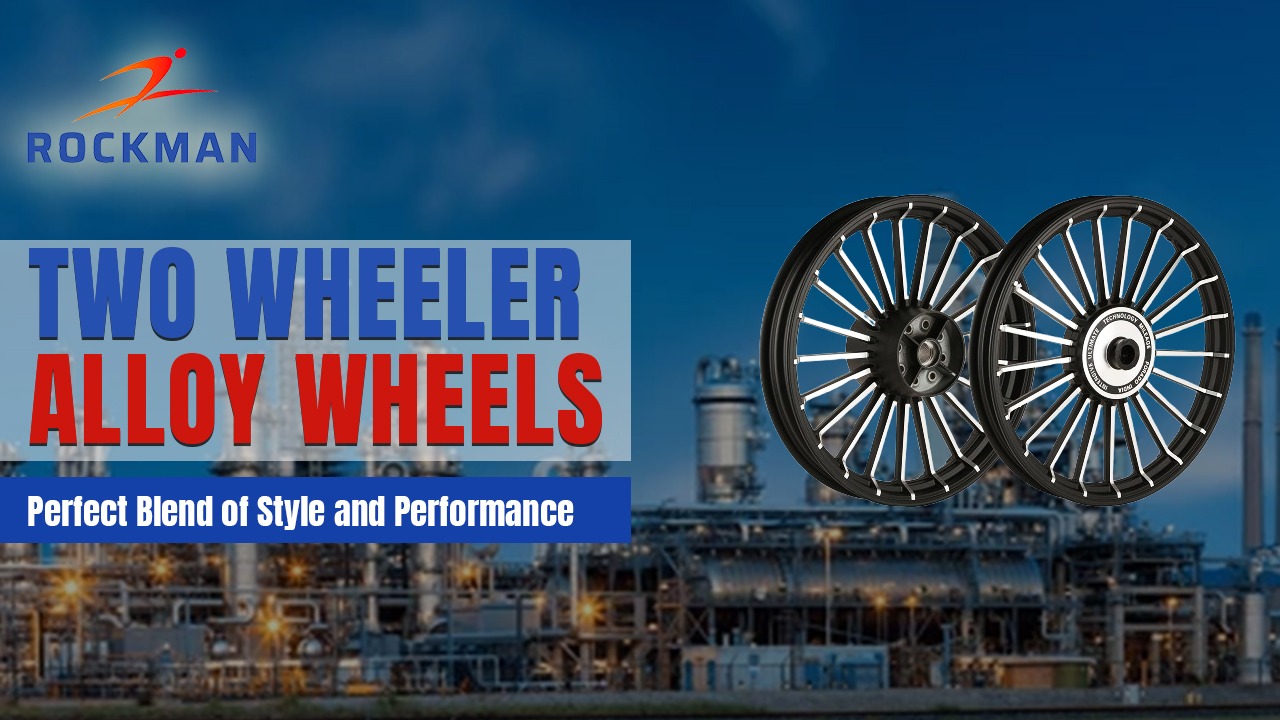
Bike or two-wheeler performance and efficiency greatly depend upon the tyre quality and currently, two types of tyres are predominantly running on Indian roads. Alloy wheel is one of them, which are the new age tubeless tyres designed for more safety and enhanced performance. Alloys are usually made of metals like aluminium and magnesium; hence they are light in weight and render enhanced performance. Wheels are not just functional components but also affect two-wheeler safety and aesthetics. Alloy wheels are immensely popular among enthusiast riders for their blend of performance, style, and practicality.
A Closer Look at Two-Wheeler Alloy Wheels
Alloy wheels are made of aluminium and magnesium alloy through a casting process in which hot molten alloy is poured into the wheel cast and when the alloy gets cooled in the cast, the wheel is ready to be extracted. Alloy wheels manufactured through this process have intricate designs and superior finish and are light in weight. The alloy wheels are expensive and demand high maintenance but the manifold benefits associated outweigh the expensive cost aspect. These wheels are known for offering a fine balance of weight, strength, and durability.
Key Benefits of Alloy Wheels for Two-Wheelers
Most of the two-wheelers manufactured today have alloy wheels that forayed into the market in the 1970s and changed the tyre manufacturing industry dynamics because of their ease of manufacturing and ability to run bikes without tubes. Bike manufacturers prefer alloy wheels, as they are safer, modern, and require less maintenance. Some of the other major benefits of alloy wheels include:
Lightweight Design – Alloy wheels are light in weight which is a significant advantage of this wheel, as lightweight means less rotational inertia that leads to improved acceleration and better handling. This two-wheeler leads to a highly responsive ride and better fuel efficiency and hence this wheel becomes an obvious choice for the manufacturers and riders.
Enhanced Aesthetics – Most riders value aesthetics, hence the sleek, modern designs and metallic finishes of the alloy wheels enhance the overall look of the two-wheeler. Two-wheeler alloy wheels are available in diverse styles, ranging from sporty designs to minimalist patterns. Riders also get the option to personalise their vehicles with their choice of wheel.
Improved Heat Dissipation – These wheels are made from aluminium alloys that have excellent thermal conductivity, which helps in heat dissipation. This proves immensely beneficial for braking systems that get overheated after prolonged use of the two-wheeler. Alloy wheels reduce the overheating risk, thereby enhancing the safety and performance of the bike.
Corrosion Resistance – Alloy wheels are extremely resistant to corrosion and rust compared to steel wheels, making them ideal for riders who frequently ride in wet or humid conditions. This feature of alloy wheels enhances their durability resulting in a longer lifespan and reduced maintenance costs.
Better Ride Quality – Alloy wheels in two-wheelers are known for offering smooth ride because of their lightweight nature and structural properties. The improved suspension performance of the alloy wheels ensures better contact with the road, particularly on uneven surfaces.
Tips to Care for Alloy Wheels
Two-wheeler owners should properly care for and protect alloy wheels to ensure their long-lasting performance and maintain their aesthetics. Proper maintenance of the alloy wheels also avoids unnecessary damage and maintains their quality for a long period. Some of the essential alloy wheel care tips include:
Clean Regularly – Regularly removing dirt and grime from alloy wheels using a mild soap or cleaner with a soft brush prevents abrasion damage and tarnished surfaces. The contaminants built up on alloy wheels like dirt and road debris cause damage to the surfaces of the alloy wheels and hence these need to be regularly cleaned.
Damage Inspection – Riders should frequently check alloy wheel rims for cracks, bends, or other flaws to ensure the safety and optimum lifespan of the wheels. Regularly checking the alloy wheels takes only a few minutes but ensures complete peace of mind while riding the bike or scooter.
Proper Alignment and Balancing – Bikers should regularly check the alignment and balancing of the wheels of their two-wheelers, as misaligned wheels may unevenly wear which can reduce the performance of the two-wheelers and can raise safety issues for the riders.
Alloy Wheels – Future of Two-Wheeler Design
Alloy wheels with advancements in material and manufacturing technologies are also evolving. The innovatively designed wheels come with better strength-to-weight ratios and offer improved performance. With the automotive industry focusing on lighter and fuel-efficient vehicles, alloy wheels are becoming a significant component of the modern two-wheelers. In addition to this, the rise in popularity of electric vehicles is also leading to the adoption of alloy wheels in these vehicles. Alloy wheels lead to the lightweight design of the electric vehicles complimenting the performance requirements of drive trains of electric vehicles.
Conclusion
Alloy wheels are a perfect combination of form and functionality and are beyond a style statement. These wheels have become an excellent choice for two-wheelers because these wheels enhance aesthetics and boost performance and safety along with several other benefits. Picking an alloy wheel for the two-wheeler will surely transform the riding experience of the people. The future of alloy wheels looks promising, especially with technology evolving even more advancements can occur to meet the growing needs of the two-wheeler enthusiasts.


